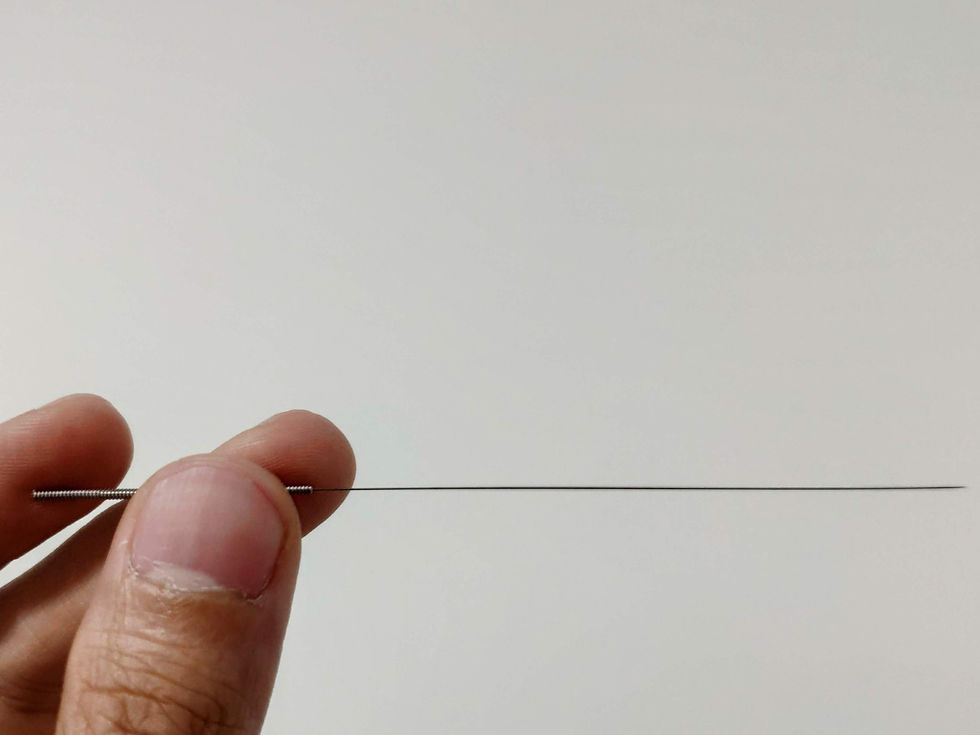
In our busy lives, it's common to experience stress and physical discomfort, prompting many to seek alternative healing methods to find relief and restore balance. Acupuncture, an ancient Chinese practice, has garnered attention for its effectiveness in alleviating pain and supporting overall health. By gently inserting fine needles at specific points on the body, acupuncture taps into your body's natural ability to heal itself.
Let’s explore how acupuncture can serve as a valuable tool for pain management to promote your well-being.
The Mechanics of Acupuncture
Acupuncture is based on the principle of restoring balance to the body's energy, known as Qi (pronounced "chee"). This form of therapy is believed to work by stimulating specific points that trigger the release of your body's natural painkillers, known as endorphins. By activating the body’s pain-relieving mechanisms, acupuncture helps reduce discomfort without the side effects associated with conventional pain medications.
Pain Reduction and Inflammation Control
One of the most recognized benefits of acupuncture is its efficacy in pain management. Conditions such as chronic back pain, arthritis, and migraines respond particularly well to acupuncture. The practice works to reduce pain and inflammation by improving circulation, releasing muscle tension, and balancing the nervous system. This approach not only alleviates existing pain but can also help prevent future discomfort by addressing the underlying issues.
Nervous System Balance
Acupuncture doesn't just focus on pain relief; it also supports digestion and hormonal health. This therapy has been shown to help regulate internal systems, enhance immunity, and boost energy levels, paving the way for long-term wellness and vitality.
Curious About Acupuncture?
Conditions Treatable with Acupuncture
Acupuncture offers a promising non-invasive approach to addressing a wide array of health concerns.
For individuals struggling with musculoskeletal pain, acupuncture has been found to be particularly beneficial in relieving lower back pain, sciatica, and other issues affecting the neck, shoulders, knees, and hips. This includes pain resulting from whiplash, frozen shoulder, arthritis, surgery, and joint pain.
In addition to musculoskeletal pain, acupuncture is widely recognized for its effectiveness in alleviating neuropathic and nerve-related pain conditions. This includes symptoms associated with sciatica, carpal tunnel syndrome, neuropathy, and trigeminal neuralgia.
Moreover, studies have demonstrated the therapeutic potential of acupuncture in treating headaches and migraines, including tension headaches, chronic migraines, and cluster headaches.
For those experiencing chronic pain conditions, such as fibromyalgia, arthritis, TMJ disorders, and myofascial pain syndrome, acupuncture presents a viable alternative or complementary approach to traditional treatments.
Furthermore, acupuncture can also be beneficial for women's health, providing relief from menstrual pain, addressing endometriosis-related discomfort, and supporting postpartum recovery. By integrating acupuncture into a comprehensive treatment plan, individuals may experience enhanced pain management, improved overall well-being, and a more balanced quality of life.
What Success Looks Like: Measuring Acupuncture's Effectiveness
So, how can we define success in your acupuncture journey? Here are some key indicators to consider:
1.) Pain Reduction: You'll likely experience a significant decrease in pain intensity after your treatment sessions.
2.) Improved Function: You may find that you can carry out daily activities more easily and with less discomfort.
3.) Positive Self-Reported Experience: Many people report heightened feelings of relaxation, increased energy, or an uplifted mood following their sessions.
4.) Management of Symptoms: Even if your symptoms don’t completely disappear, effectively managing them and preventing any worsening can still be seen as a successful outcome.
These indicators can help you gauge your progress and celebrate the benefits of acupuncture along the way.
The Benefits Beyond Pain Relief
In addition to its main focus on pain management, acupuncture offers a variety of other health benefits. These include:
Stress Reduction: Many people experience improved mood and lower anxiety levels after treatment.
Improved Sleep: Acupuncture can help relieve insomnia and enhance overall sleep quality.
Digestive Health: It may alleviate gastrointestinal issues, such as irritable bowel syndrome (IBS) and nausea.
Enhanced Immune Function: Regular sessions can strengthen your immune response, potentially reducing how often you get sick.
Hormonal Balance: Acupuncture can help regulate menstrual cycles and alleviate symptoms associated with hormonal disorders.
Overall, it’s a holistic approach that can greatly contribute to your well-being.
What to Expect During Your Acupuncture Journey

When you choose acupuncture, you can expect a warm and welcoming environment. During your initial consultation, your practitioner will take the time to understand your medical history, lifestyle, and specific concerns. A personalized treatment plan from our San Antonio practitioner will be crafted to address your unique needs, ensuring that every session is tailored to optimize your healing process.
Embrace Your Journey to Wellness
Acupuncture truly highlights the body's remarkable capacity for self-healing. If you're looking for natural and effective ways to alleviate pain and discomfort, exploring acupuncture could be a valuable addition to your wellness journey. Whether you're dealing with chronic pain, managing stress and anxiety, or simply aiming to improve your overall wellbeing, acupuncture provides a unique, holistic healing experience.


Kommentare